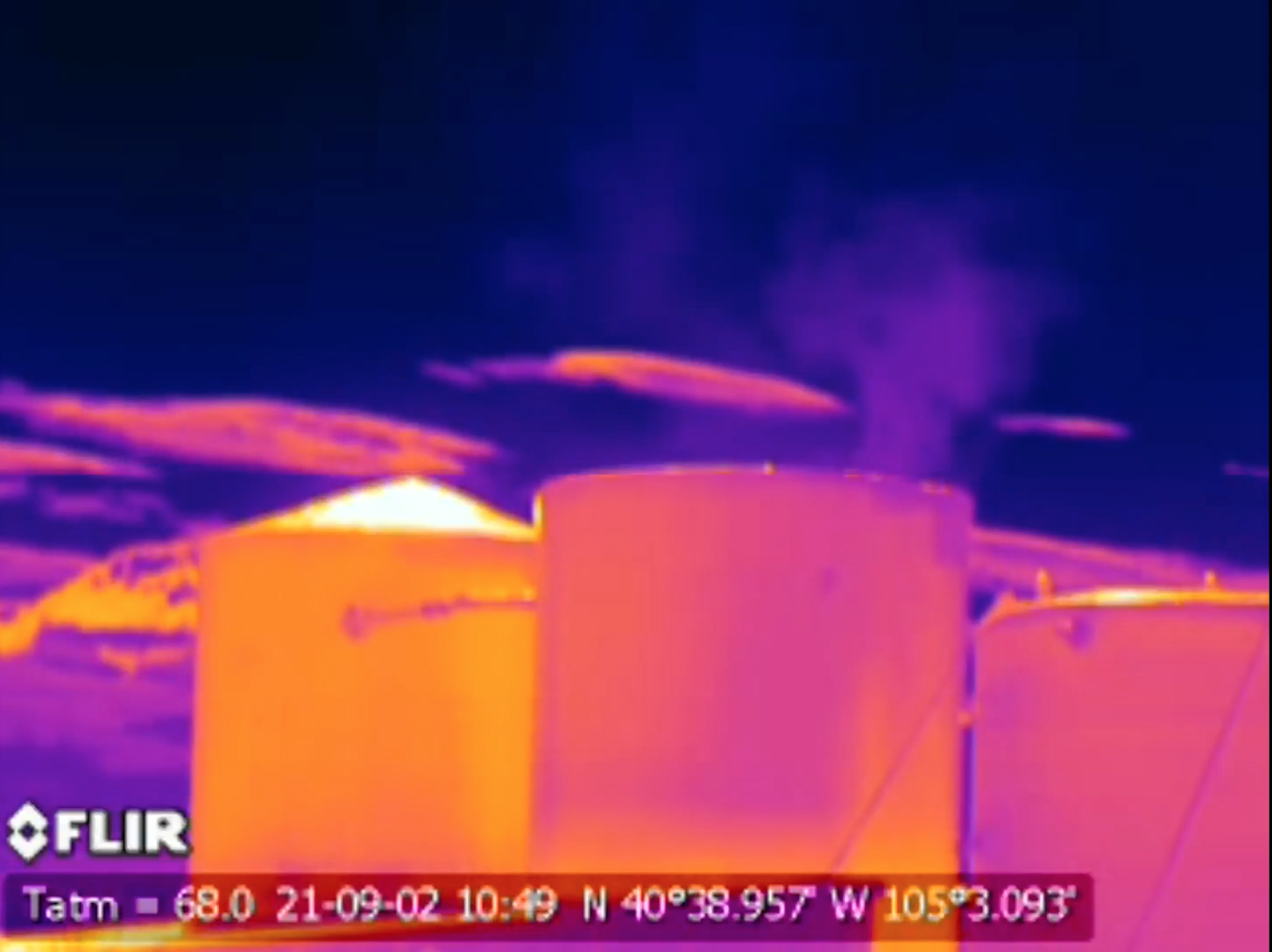
After repeated air pollution violations, Colorado regulators ordered Prospect Energy to immediately cease operations at an oil and gas storage site north of Fort Collins.
Michael Ogletree, the director of the Colorado Air Pollution Control Division, said Wednesday’s shutdown order at the company’s Krause tank battery marks the first time Colorado has shut down a facility due to air pollution concerns in over a decade.
"This is something we don't take lightly," Ogletree said.
The site gathers and stores oil and gas from nearby drill sites. The state started inspecting the facility in 2021 after repeated odor complaints from nearby residents. During a June visit, a state air sensor sounded an alarm for hydrogen sulfide, a flammable, toxic and dangerous gas that smells like rotten eggs.
The chemical is an immediate threat to human health. Even fleeting exposures to the compound can irritate the eyes and cause headaches. At higher concentrations, the toxin can cause unconsciousness and, in some cases, lead to permanent effects like poor memory and motor function.
The Air Pollution Control Division has cited the facility for breaking environmental law four times since December 2021. After finding Prospect Energy had not made meaningful efforts to bring the site into compliance, it ordered a shutdown under Colorado laws that give them emergency authority over operations considered a direct threat to public health.
Ogletree said inspectors confirmed the company followed through with the shutdown order Thursday. Ward Giltner, the owner of Prospect Energy, did not immediately return a request for comment.
The shutdown order was a welcome relief to Von Bortz, who lives near the tank battery and operates a farm animal rescue facility.
"For the longest time, I’ve been afraid to open my windows. I’m still a little scared, but, if they can get into compliance, that’s great," Bortz said.
Bortz has spent years pushing public officials to crack down on the oil and gas storage site. He first noticed bursts of a strong sulfur smell after moving to the property in 2017. Months later, he said he developed symptoms consistent with hydrogen sulfide exposure, including headaches, nausea and dizziness.
After growing frustrated with state regulators, he contacted Earthworks, an environmental nonprofit focused on pollution from the oil and gas industry.
In 2021, Earthworks field organizer Andrew Klooster filmed the Prospect Energy facility with a specialized camera that can capture footage of oil and gas emissions. The images showed a consistent plume coming from the top of the tanks.
State inspectors followed up on the reports and confirmed illegal releases of volatile organic compounds, a category of chemicals that includes hydrogen sulfide and other dangerous air toxins. Volatile organic compounds are also a primary ingredient in ground-level ozone pollution along the Front Range.
Air regulators traced the problem to poorly maintained lines that siphon and transport gasses from the tanks. The agency ordered Prospect Energy to fix the problem, but later inspections showed the site was still leaking and violating pollution rules. In a statement, division officials said company employees also failed to attend meetings with regulators.
Sergio Guerra, the deputy director of stationary sources at the agency, said state regulators ordered the facility to identify the root causes of the leaks and detail a plan to make modifications.
Hydrogen sulfide is a relatively rare problem at oil and gas facilities in Colorado, Guerra said. He noted Prospect Energy uses an uncommon process more likely to generate the toxic gas.
There is currently no timetable for Prospect Energy to restart operations. At the moment, regulators are setting up a meeting with the company to review the requirements and detail a pathway back to compliance.
"Our main concern right now is the welfare of nearby residents," Guerra said.









